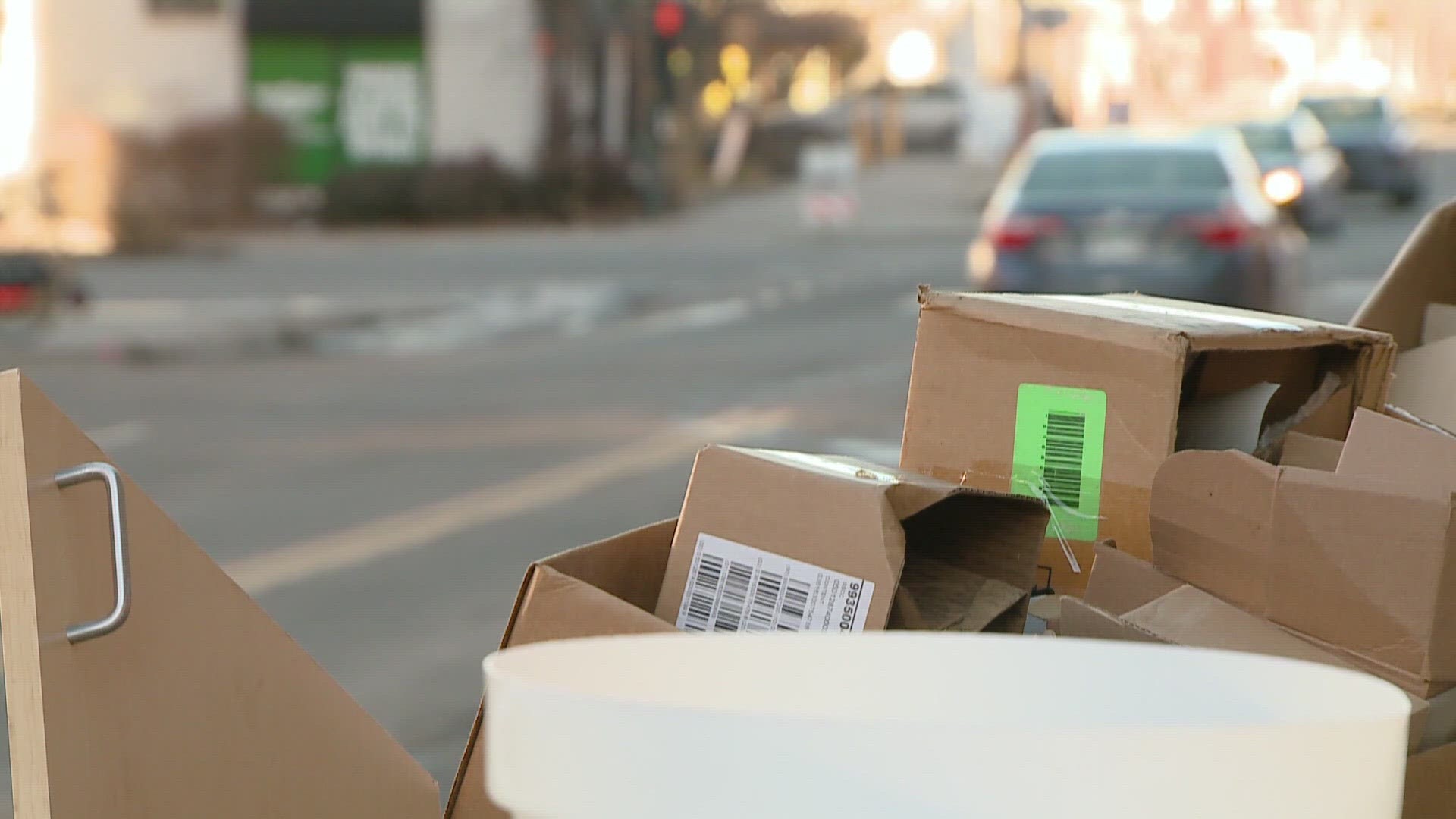DENVER — For as green and eco-friendly Colorado has become, we're still pretty bad at recycling.
This year's State of Recycling and Composting report from Eco-Cycle and the Colorado Public Interest Research Group (CoPIRG), shows the state recycling rate remaining stagnant at 16%, half the national average. In other words, it means 84% of the waste we produce go right into the landfills.
It's the same place we were a year ago.
To date, many of the same issues remain. A lack of equity, for one. According to the report, 19% of multifamily complexes have curbside recycling access nationwide, compared to 40% of single-family homes. For most Coloradans, access to recycling is a monthly fee (in addition to trash pickup), meaning people need to pay more just to access those services.
Despite that, the report does hint at reason to be hopeful.
HB22-1355, AKA the "Producer Responsibility Program for Recycling", aims to change all that by providing recycling services to all Coloradans, regardless of income.
"We're really excited for this producer responsibility policy to kick in, which will raise more money from those very companies that are producing the stuff that we buy, to help fund those recycling systems. If we can get more recycling systems across the state, it'll drive down the cost and make it more affordable, especially in rural areas," said Danny Katz, executive director of CoPIRG. "The more of those recyclable materials, whether it's glass or aluminum or paper that we're putting into our bins, the more businesses can come here and reuse those materials instead of drilling or mining for virgin new materials. And that's better for all of us."
Furthermore, a statewide study, SB23-191, will look at building out composting infrastructure in Colorado to fill gaps in access and processing capacity.
What's next?
"Statewide, we've seen a single-use plastic bag ban that will be going into effect on Jan. 1, along with a single-use polystyrene cups and containers ban going into effect on Jan. 1. So we're starting to move away from some of those worst, non-recyclable items," said Katz.
That ban is the result of HB21-1162, a bill that became state law in 2021. It took effect in January 2023, implementing a statewide fee on single-use checkout bags (plastic and paper).
In July 2024, the state will also start allowing local jurisdictions to ban plastics, allowing some to take action to reduce plastics even further.
"Anytime we've seen a policy kick into place that reduces some of the single-use plastics, we've seen a dramatic drop in the amount of single-use plastics in those communities. So you know, for example, both Boulder and Aspen, we've seen huge drops in how many single-use plastic bags those communities are using, when they have single-use plastic bag policies put into place to reduce those uses," said Katz. "We saw a hotel system in Breckenridge that switched away from those single-use plastic shampoo and conditioner bottles to refillable bottles that are just in the shower. And again, they've reported, you know, massive amounts of plastic reduction."
What can I do to help?
According to Katz, 30 to 50% of the waste produced is organic material, meaning that it can be compostable.
"That's really important because those organic materials, if they're in a landfill, they just produce methane pollution, they don't really break down organically. But if we can collect that stuff and get it to a compost facility, it can produce soil — really rich, nutrient-rich soil that can then go to farms and parks," said Katz.
In addition, know before you throw. Make sure the stuff you recycle is actually recyclable. Empty out any liquids or solids from containers or bottles before throwing it in the recycle bin.
Note: Data in this year's report is from 2022. Any data would have been impacted by decisions and policies in 2021.
SUGGESTED VIDEOS: Latest from 9NEWS

